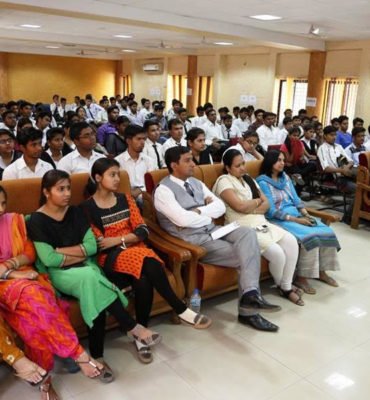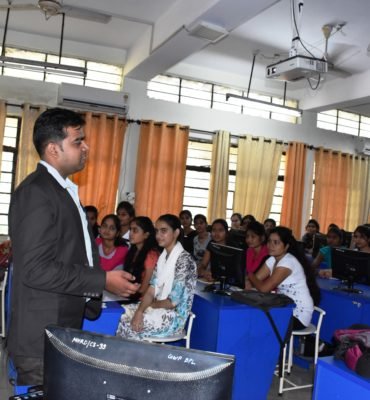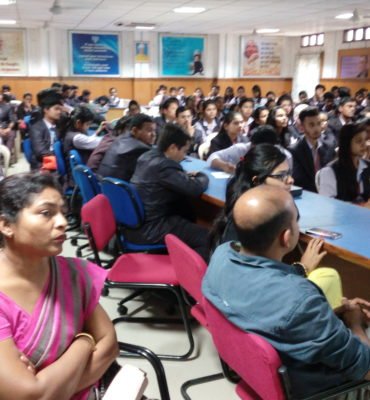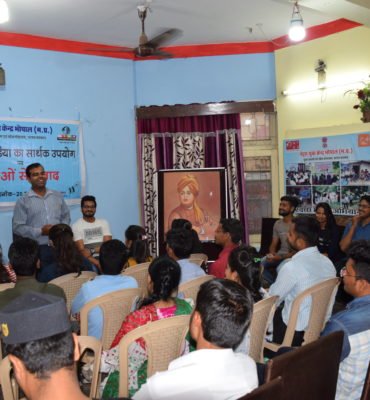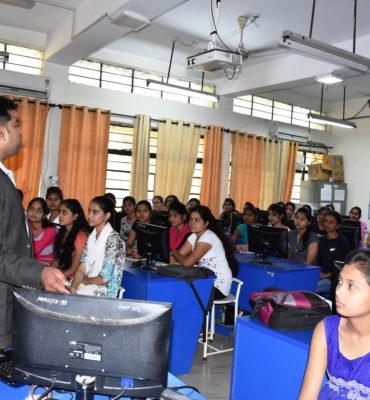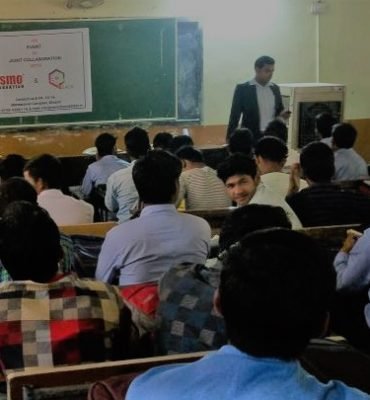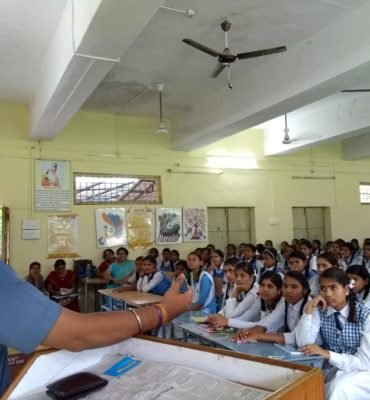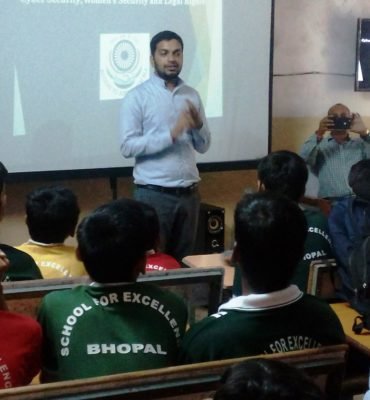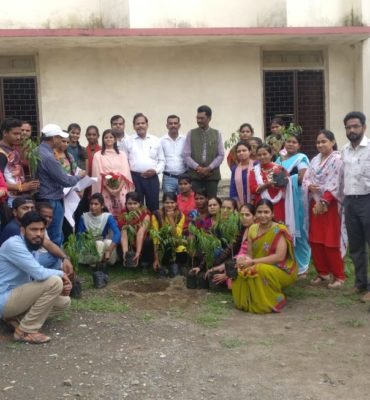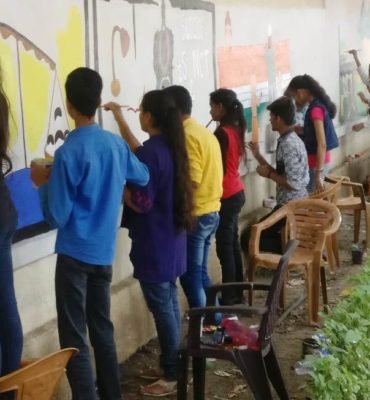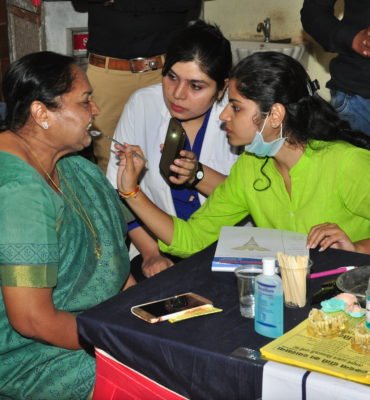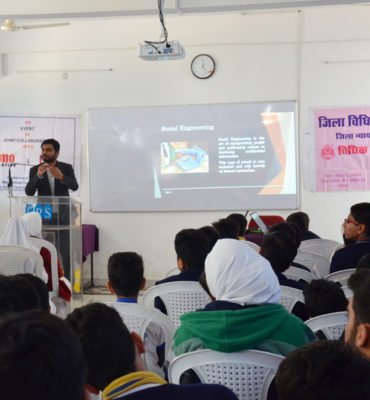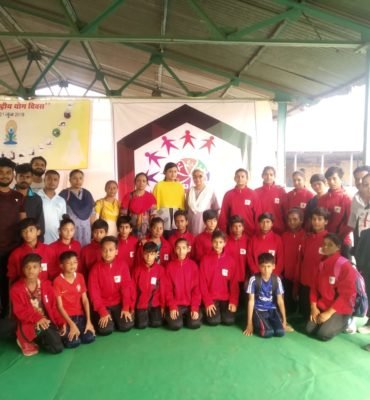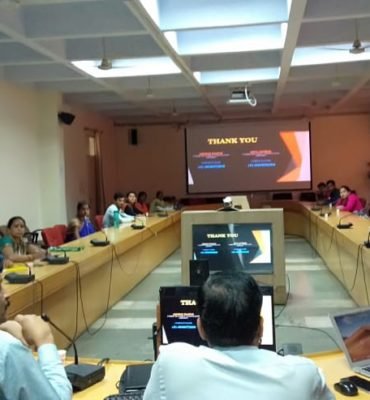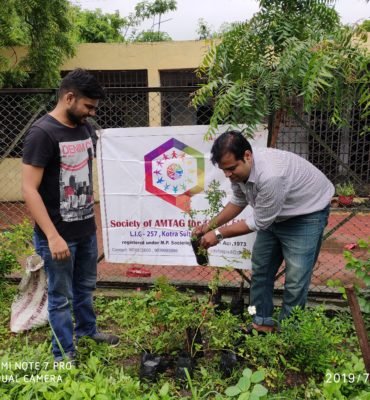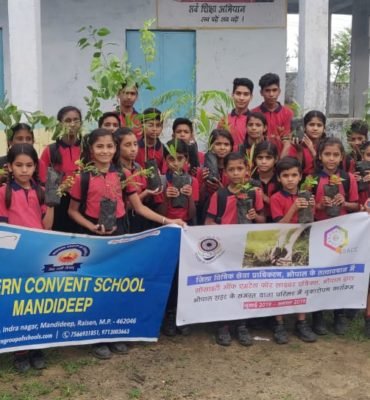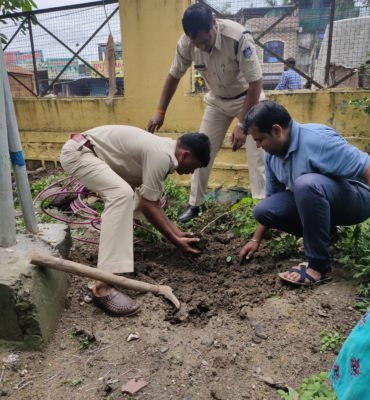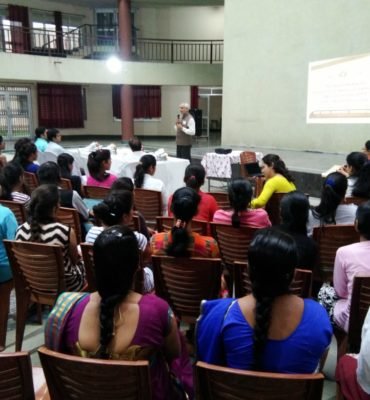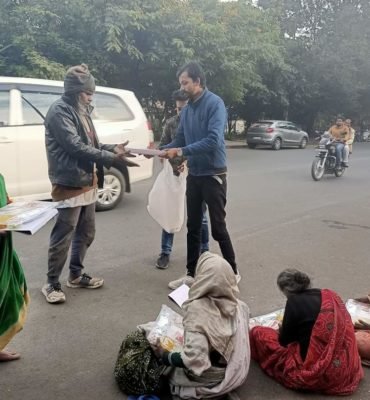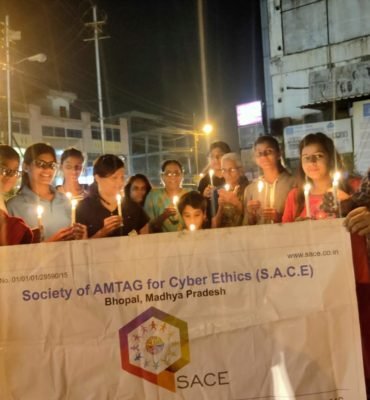Training Programs
Over 100000+ Beneficiaries
Campaigning for the society ...
Awareness Sessions
Plantation Programs
Health Programs
"It's never late, to take a initiative. All you need to hold a positive spirit."
We at
Society of AMTAG For Cyber Ethics - S.A.C.E.
The S.A.C.E. is one of the forefront civil society organisation based in Madhya Pradesh, India. Its early inception was in the area of Cyber Security and Legal Awareness that gradually progressed into a holistic organisation working for the social and economic development of society at large. It’s dedicated team and volunteers ensures the presence throughout Madhya Pradesh. The organisation is focused for the development of inclusive, resilient and welfare society where the marginalised section should have the equal opportunity to grow.

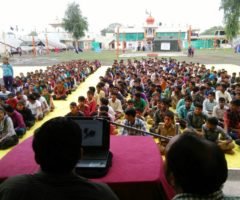
Number and statistics are not enough...
Although, Care & Protection is much necessary
COVID-19 Pandemic!
NO Medicine
NO Relaxation
Be Alert with
Responsibility
Some accomplishments we received...
संगीता सक्सेना
प्राध्यापक, हिंदी, शा. म.ल.बा.कन्या स्नातकोत्तर महाविद्यालय, भोपाल
एमटैग फार साइबर एथिक्स संस्था साइबर अपराधों और उनसे बचाव के उपायों के बारे में आम जनों को जागरूक करने में एक महती भूमिका निभा रही है । साथ ही टैक सेवी नई पीढ़ी से सार्थक संवाद भी कर रही है । समसामयिक समाज में जागरूकता फैलाने के उनके सतत प्रयासों के हम आभारी हैं और बहुत सारी शुभकामनाएं देते हैं ।
Usha Antony
Principal, Holy Cross School, Bhopal
Keeping our philosophy of school, focusing on our Motto 'In pursuit of truth, conducting social activities in our school we are pleased to have association with S.A.C.E. We are particularly impressed with the methodology and working pattern of S.A.C.E to serve the various sections of society. Wishing the children the great future under your patronage.
Bhawna Hargunani
Cordinator, KIDZEE School, Gulmohar, Bhopal
We are pleased to have been associated with (society of AMTAG for Cyber Ethics, S.A.C.E.)focusing on health measures for our students, organised free dental check up for our kids and staff it was really a wonderful experience. All staff are well trained and very friendly with kids.
Dr. Jyoti Sharma
Mansarovar dental College and research centre ,Bhopal
We try to come alongside people and interact with our supporters so that they know that we see them, we’re with them, and we’re in this together.”...
Best wishes for AMTAG society
Muskaan Keswani
Principal, Maharishi Kids Home, Arera Colony, Bhopal
Society of Amtag for cyber ethics is one of the best NGOs I have come across. Their dedication towards the cause is exemplary. The work done by S.A.C.E in Rohit nagar slums have given new life to poor people of slum areas, there was extreme suffering due to lack of basic necessities. I do not have words to thank them enough and feel privilege to be a associated member for being organized dental camp and session in our school.
Dr. Archana Shrivastava
Associate Professor, Rajeev Gandhi College, Bhopal
The people from NGO gave a lecture on cyber crimes done through ATM to the students of Rajeev Gandhi College, Trilanga, Bhopal, M. P., which was very fruitful for them.
Dr. Mani Deo
Doctor
NGO like society of AMTAG for cyber ethic is really working good for society.This NGO is working beyond borders of politics , religion , culture,race and ethnicity.Proud to be part of this NGO .Keep going best wishes from my side
Ms. Jyoti Kamble
Clinical Psychologist, (Rehabilitation Council of India)
Great to see such good work done by the President AMTAG Mr. Akshay Bajpai and their team. They are extremely committed and passionate.
Many activities like workshop sessions, talks and camps was conducted by AMTAG to create awareness among the people for cyber ethics and related issues. And how to seek professional help for the cyber related problems.
Great efforts by AMTAG, contributing so much towards society, God bless! All the best.
Dr. Asha Verma
Professor, DR S P M GOVT SCIENCE AND COMMERCE COLLEGE BENAZEER BHOPAL.
I found the experiences with Society Of AMTAG For Cyber Ethics in a seminar organized jointly in our college for awareness program. The expert team was wonderful and very efficient they gave all the information problems and growing issues of cybercrimes in a very easy way to students and explained the proper solution .I wish all the best for the bright future of Society of AMTAG for Cyber Ethics.
Dr. Anima Khare
Professor, Govt. MLB College, Bhopal
S.A.C.E. conducted a workshop for my college students regarding 'Cyber Crimes and Preventive Laws'. He described all the aspects of this topic with a very practical approach . Again , he gave the answers of all the questions from students as well as teachers in detail. It was a good and fruitful workshop. AMTAG is doing really great in the field of Cyber Security and Laws. All the best.
Activity Sectors
Today, the environment is facing major challenges in the form of forest and land degradation. The natural resources are depleting at a rapid rate that could be hardly self-sustain. It is very evident that greed, as well as the need of the human race, have compromised the equilibrium of nature. Now, the results are being much more distinct in the form of biodiversity loss, melting glaciers, change in climate and many more.
Indian policymakers are determined for environmental protection as they’ve passed many legislations in this line. However, prevalent ignorance and deep-rooted poverty and illiteracy at the ground-level have restricted the proper reclamation of the environment.
We were working complementarily with the government and private entities in the following verticals:
| Afforestation | Plantation drives |
| Water Harvesting Management | CFC and GHG reduction strategies |
| Awareness about GM crops | Air and Noise pollution awareness |
| Wetland conservation programs | Sustainable agriculture |
| Organic farming | Awareness of tribal population |
The countries’ development status is reflected from the amount of investment in the health improvement sector and malnutrition alleviation programs. India, being a developing nation, is facing a daunting task to fight with these problems which when coupled with poverty and illiteracy increases the gravity of the problem manyfold.
The National Family Health Survey (NFHS)-4 (2015-16) Report reflects the issue more serious in India as 35.7 % children below five years are underweight, 38.4 % are stunted and 21 % are wasted in the country. In the State of Madhya Pradesh, the issue of health and malnutrition is even more complicated as 42.8 % children below five years are underweight, 42 % are stunted and 25.8 % are wasted. Further in the State of Madhya Pradesh the districts of Barwani and Sheopur have reported highest (55%) of children under 5 years who are underweight during 2015-16 (NFHS-4). The infant and children (under 5 years of age) mortality rates are 41 % and 50 % respectively.
Per the NFHS-4, the women between 15-19 years of age who were already mothers or pregnant at the time of the survey were 7.9 % as compared to 16.0 % to its predecessor report. The anaemic women between 15-49 years of age were 53.1 %.
Although, the figures provided in the recent report provides some relieve when compared to the NFHS-3, the current data is still unacceptable in a welfare society. The need of the hour is to formulate policies and the involvement of the civil societies to create pressure on the state and to intervene directly for the betterment of the unprivileged.
Our team is dedicatedly organising camps and sessions for awareness for health and malnutrition at various levels and create lobby to improve the state at substantial levels.
The ever-growing cyberspace and prevalence of digital social media have raised many concerns of cybersecurity. Youth has been the most impacted section of society, which can be strategically channelized using the social medium. The usage of e-commerce and economisation of online infrastructure has spread the scope of cybersecurity consulting and awareness.
Being founded by a team of experts from the domain, our society has integrated Cyber Security awareness programs as one of the fundamental structure of the organisation and have conducted many campaigns successfully throughout different places.
Apart from cyber law awareness, we also conduct regular camps for legal and moral rights’ sessions for the vulnerable section of society. Our prime objective is to facilitate the poor to access the justice system and be well known of the hierarchy and structure of the legal system of the country.
India has fared too low in the Global Hunger Report, standing 103rd among 119 countries – far behind other Asian countries including China (25th), Nepal (72), Bangladesh (86). The UN’s Food and Agriculture suggests that India stands far behind in meeting its Hunger Reduction Targets. The state of affairs appears to be more dismal when considering the state of undernourishment and wasting.
Although India produces enough food grains to feed its population, access to food remains a major concern. There is a huge mismatch in the supply-chain of food distribution. The government has promulgated policies and initiatives to bridge this gap. However, the actual trickle-down appears to be flawed. Even the private stakeholders have stepped in to eradicate this structural problem.
The policies such as the Targeted Public Distribution System have provided an infrastructural balance to fight with the hunger issue but the leakage and corruption in implementation made people suffer. The idea of social audit and positive interference from within the society is expected to realize the goal of true democracy.
Education is the most important and effective way to break out the cycle of poverty. The Right to Education Act, 2009 paved the way to enroll as well as retain children in school particularly from the marginalised section of the society. According to the 71st Round of the National Sample Survey on Education over 2 crore children are still out of the organised educational system of the country. The Right to Education (RTE) Act, 2010 made education free and compulsory for all children between 6 and 14 years old. The RTE has substantially increased the enrolment rate but is certainly not enough to address the issues faced by the Indian education system.
The modern education in India is often criticised for encouraging theoretical rote learning, rather than comprehension, critical thinking and problem-solving. Students spend most of their time memorising a syllabus with no thought given to learning or analysis. Textbook knowledge, rigid ideas, and test scores take precedence over open debates and logical reasoning. Little room is left for creativity to thrive.
We believe in imparting basic education through interactive activities and analytical understanding. We contribute our part in the society by organising regular camps and sessions for children of varied age-groups. We build partnerships with different public and private educational institutions to up-skill the structural system of education.
Empowerment, per se, is a multi-lateral strategy that entitles the underprivileged to stand a chance to compete in the highly unequal society and to live a life with dignity. With reference to women and children, they are considered as the most vulnerable section of the society and are in urgent need for a pro-active interference from government and civil societies for their betterment and upliftment.
In the word’s of Pt. Jawaharlal Nehru, “You can tell the condition of a nation by looking at the status of its women”. The need for woman empowerment lies its roots deep in the history-old domination and discrimination done by men over women. They’ve faced varied types of violence and discriminatory practices throughout the world. India is no exception.
As per the UNICEF’s “State of the World’s Children-2009” report, 47 % of India’s women aged 20-24 were married before the legal age of 18, and around 40 % of the world’s child marriages occur in India. It is the responsibility of the state and civil societies to aware the society about the mental and physical trauma a woman faces after marrying early. Even, the figures of dowry death toll 8,618 as reported by the National Crime Records Bureau in 2011. The most trivial yet ubiquitous problems women face in India is eve-teasing, which includes sexual harassment and molestation. It is the urgent need to sensitize the men-dominating society to stop objectifying the women and treat them equally as they are.
Human trafficking, most commonly, is referred to as the illegal trade of humans for the purpose of sex trafficking and forced labor. As per the Global Slavery Index of 2018, India fared 53 out of a total of 167 countries. The occurrence of Human trafficking can be traced back to the history-old gender-based discrimination faced by women. The heavily patriarchal society leaves girls with limited access to education, leading to gender gaps in both literacy and earning rates. As per the 2011 census data, out of the total 74 % literacy rate in India, only 65 % were women.
According to the National Crime Records Bureau (NCRB), there were 6,877 human trafficking cases were reported in India. The figures, however, remained a gross under-estimate as many cases were unreported as many people are still unaware of the crime or lacking the confidence to seek help from the administration. The data also suggest that over 60 % of the victims rescued were children. The women and girls accounted for around 55 % and the age-bracket of 15-18 years appears to most vulnerable.
The Government of India is working progressively to fight against human trafficking, particularly by strengthening border security and increasing the budget to aid the victims of human trafficking and drafting of The Trafficking of Persons (Prevention, Protection and Rehabilitation) Bill, 2018. The Bill also includes provision for rehabilitation of victim, redressing physical and mental trauma as well as education and skill development. The sensitisation of the society is of utmost importance and the role of civil society stands tall here.
Our Affiliation and Associations...

NITI AAYOG
NEW DELHI

MADHYA PRADESH JAN ABHIYAN PARISHAD
BHOPAL

DISTRICT LEGAL SERVICES AUTHORITY
BHOPAL

KIDZEE SCHOOL
BHOPAL

MANSAROVAR GROUP OF INSTITUIONS
BHOPAL

MODERN GROUP OF SCHOOLS
BHOPAL

HOLY CROSS SCHOOL
BHOPAL

MAHARISHI KIDS SCHOOL
BHOPAL

Overall
1.3M+
Amount Projects Executed Successfully.
Since Inception...

Started Campaigning
with a motive to spread Cyber Security and Legal Awareness to Everyone
Reached a Milestone
by creating awareness among 10000+ individuals
Affiliations and Recognitions
by performing activities in various domains we receive guidance from our mentors with different institutions and organisations for our new initiatives and plans.

Initiative for Biodiversity
with a vision towards green planet, we started mass plantation program with support from our volunteers.

Empowering and Expanding
our efforts to help maximum number of people by conducting camps, distributions, trainings, workshops and many for better livelihood.
Journey Continues...
PLease join us and
Lets unite together for a social cause...
Our Team
AKSHAY BAJPAI
PRESIDENT
Akshay is a practicing lawyer and expertise in Cyber Law cases. He is one of the core founding members of SACE. Expertise in Moral and Legal Rights, he has been involved with many programs, workshops, sessions, and seminars on judicial activism, child development, arbitration, women empowerment, and sustainable environment.
RAJUL JYOTISHI
VICE PRESIDENT
Rajul has an enormous quantum of experience in agricultural and allied sectors. He has worked on the grass-roots with the real planters and has been involved in imparting them training for advanced agricultural strategies. He is also interested in child development and women empowerment.
ATUL PATHAK
SECRETARY
A pro-active entrepreneur, involved in many ventures, Atul is the founding official of SACE. Being a tech-savvy and understanding his responsibilities towards society, he started working in social service since 2015. He has delivered many lectures for technological education, career and skill development.
TARIQ KHAN
TREASURER
Tariq is the founding member of SACE and is a cyber security entrepreneur and social activist. He has developed an imperative and analytical approach to solve different problems of society. He believes in Gandhian Socialism as the perfect solution for the betterment and upliftment of the vulnerable sections of society.
KHUSHBOO BASEDIA
JOINT SECRETARY
A teacher by profession, Khushboo is well connected with the students at different levels. She bears a deep sense of responsibility towards society and to mitigate the gaps at various levels in the educational system of the country. She is willing to trickle-down education to children. She is also interested in working for women empowerment and climate sustainability.
BASEEM MANSOORI
MEMBER
Baseem is involved with many non-profit entities and imparting training to farmers and peasants about the sustainable procedure of agriculture and organic farming. He is actively involved with many campaigns for the betterment of tribal people and forest rights.

OUR
VOLUNTEERS
Our dedicated team of volunteers regularly giving their efforts to uplift the needy life along with empowering their future and also putting efforts for betterment of their livelihood.
S.A.C.E.
Near Sagar Campus,
Chanakyapuri, Chunabhatti,
Kolar Road, Bhopal,
Madhya Pradesh

